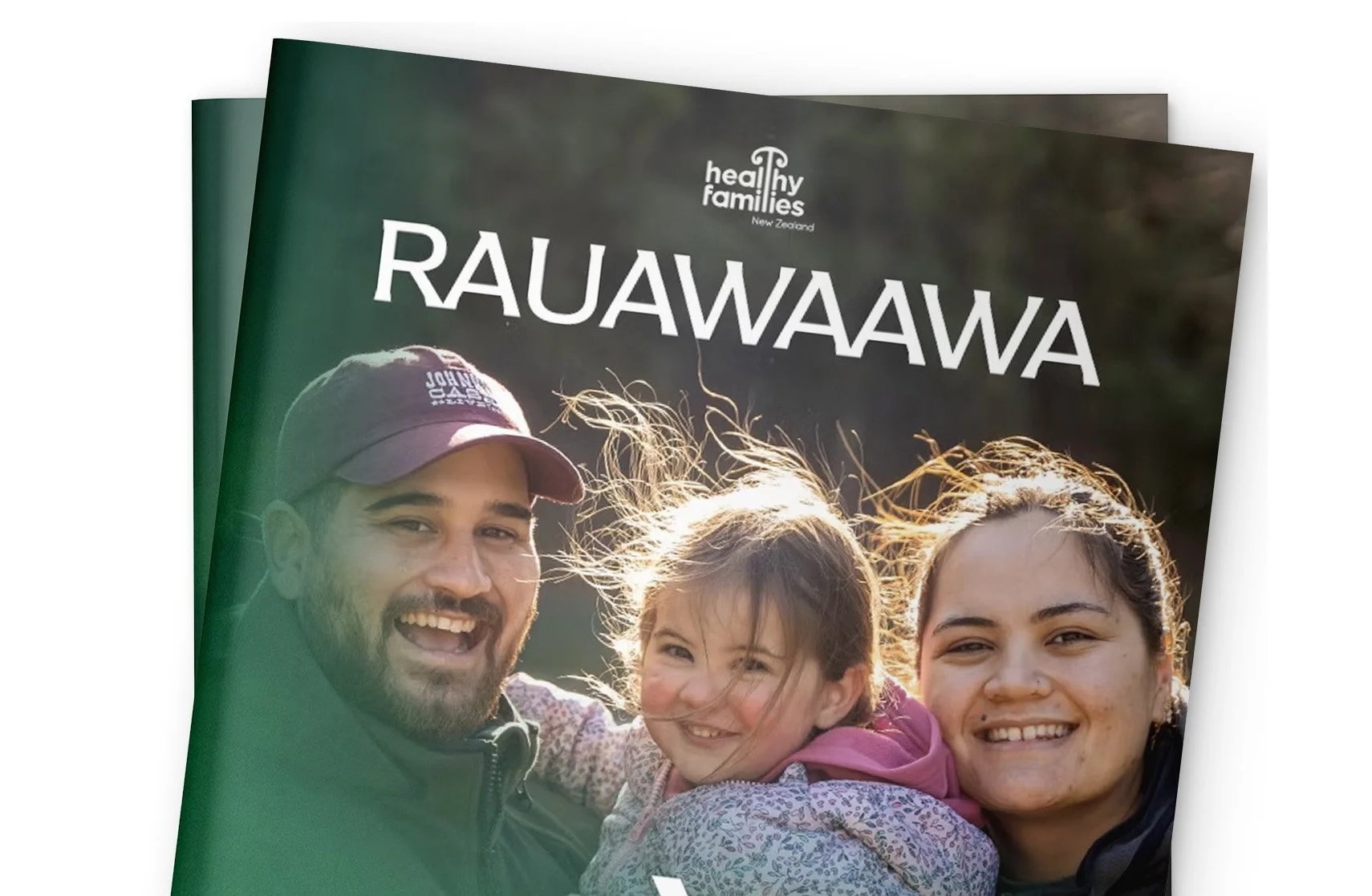
Tools for Collective Change
Practical resources, strategies, and insights to support whānau-led, community-driven transformation
Internship Report: Oral Health and Nutrition of Tamaiti
Intern Daniel Hiroti’s report shows oral health in the first 2000 days shapes lifelong wellbeing. Whānau-led solutions and equity-focused change are needed so every child can thrive.
Strengthening Whanaungatanga in Mental Health and Addictions Services
Mental Health and Addiction Collaborative Redesign of Services highlights how Te Oranganui and Te Whatu Ora Whanganui are reshaping support. With Te Hāpainga and Shared Triage Referral Pathways, the kaupapa strengthens tikanga-aligned practice, making access to care simpler, kinder, and more connected - and showing how community-led change can transform systems.
Growing Collective Wellbeing: A Community Approach to Suicide Prevention
The Growing Collective Wellbeing Insights Report reframes suicide prevention as strengthening individual and community wellbeing through connection, culture, and systemic change.
Rauawaawa National Mātauranga Māori Impact Report
The Rauawaawa report outlines a vision for a future where Māori systems and practices are the norm, and where whānau are empowered, self-determining and supported to live well in thriving environments grounded in mātauranga Māori.
Healthy Families New Zealand: 10 Years of Impact Report
The Healthy Families NZ: 10 Years of Impact report celebrates a decade of community-led, systems-focused prevention mahi, grounded in mātauranga Māori and Te Tiriti o Waitangi, that is reshaping health and wellbeing across Aotearoa.
10 Years of Impact: Growing a Regenerative Local Kai System
The 10 Years of Impact: Growing a Regenerative Local Kai System article reflects on a decade of community-led kai transformation in Whanganui. From kai collectives and marae-based meals to local hubs and seed sharing, the movement has shifted mindsets, strengthened relationships, and built the foundation for kai sovereignty and resilience.
Understanding Gambling Harm: Insights from Our Report
The gambling harm report outlines a vision for a connected and equitable prevention system grounded in community values, where whānau voices guide change, and services are co-designed to reflect Māori leadership, collaboration and the aspirations of the Whanganui region.
Te Oranganui Annual Report 2023-2024
Explore Te Oranganui’s 2023–2024 Annual Report highlighting iwi-led hauora services, Whānau Ora outcomes, mental health and addictions support, primary care, rongoā Māori, rangatahi programmes, community system redesign, and stories of whānau transformation across the Whanganui region.
The Hapū Māmā Village Insights
Explore The Hapū Māmā Village report - a comprehensive collection of insights from Hapū Māmā, whānau, and practitioners across the Whanganui rohe. Includes data, lived experiences, cultural needs, system challenges, and recommendations for iwi-led maternity villages, early-years prevention, mental wellbeing support, Māori midwifery workforce growth, and a more connected, equitable maternity system.
Fostering Hope: The Innovative Community Driven Screening Resource
The Art of a Great Referral prototype is reshaping how communities respond to distress. Co-designed with practitioners and whānau, this innovative screening resource empowers people to connect earlier with the right support, reducing crisis and strengthening collective wellbeing.
Healthy Families NZ National Alcohol Impact Report
The Healthy Families NZ National Alcohol Impact Report shares how communities and partners are driving locally-led solutions to reduce alcohol harm, challenge the status quo, and build safer, healthier environments across Aotearoa.
Smokefree Future 2030 Insights Report
The Smokefree Future 2030 Insights Report captures 18 months of kōrero with whānau, health professionals and quit coaches exploring lived experiences and community-led solutions for a smokefree Whanganui. These insights highlight the power of whakawhanaungatanga and Māori-led design in shaping a healthier future for Aotearoa.
Te Oranganui Annual Report 2022-2023
Explore Te Oranganui’s 2022–2023 Annual Report, highlighting iwi-led health services, Whānau Ora innovation, mental health and addictions wānanga, primary health care achievements, community outreach, prevention research, and 30 years of kaupapa Māori leadership across the Whanganui rohe.
Healthy Families NZ National Play Impact Report
The gambling harm report outlines a vision for a connected and equitable prevention system grounded in community values, where whānau voices guide change, and services are co-designed to reflect Māori leadership, collaboration and the aspirations of the Whanganui region.
Ruapehu Wellness Centre: Toward a Community-Designed Model of Care
Explore the Ruapehu Wellness Centre report outlining community insights, system challenges, and recommendations for a connected, holistic, iwi-aligned model of care in Waimarino. Includes values-led service design, KEKA navigators, community-led supports, consent-driven data sharing, and a future wellbeing system co-designed with whānau.
National Kai Impact Report - Healthy Families NZ
The Kai Impact Report highlights community-led food solutions across Aotearoa, from kai in schools to local hubs and composting initiatives. It shows how grassroots action, supported by Healthy Families, is reshaping the food system and addressing food insecurity with innovation and collaboration.
Te Oranganui Annual Report 2021-2022
Explore Te Oranganui’s Annual Report 2021–2022, highlighting iwi-led health services, Whānau Ora innovation, COVID-19 response, mental health support, disability services, tamariki wellbeing, and transformational systems change across the Whanganui region.





















